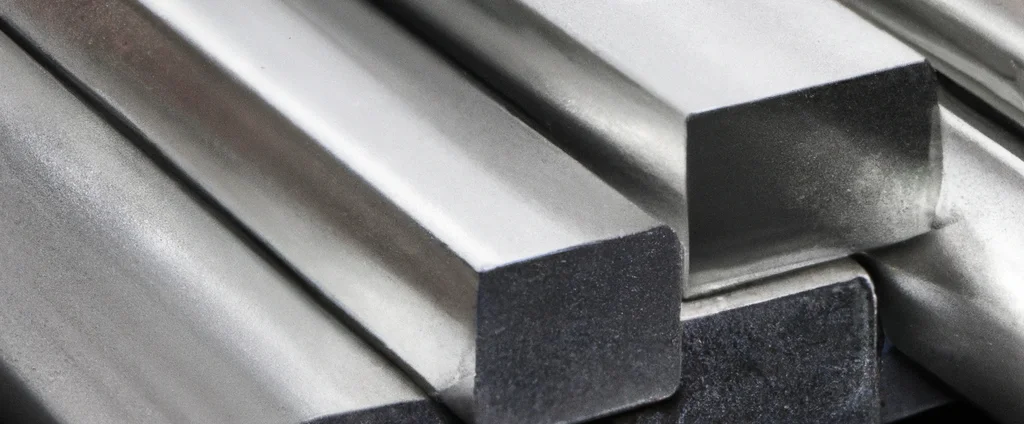Aluminum Alloy 7075 (UNS A97075)

Aluminum 7075 is a high-strength aluminum alloy known for its excellent strength-to-weight ratio. It belongs to the 7000 series of aluminum alloys, which are commonly used in aerospace, military, and industrial applications where strength and toughness are critical.
| Chemical Composition | ||
|---|---|---|
| Element | Min | Max |
| Aluminum | 86.9% | 91.4% |
| Chromium | 0.18% | 0.28% |
| Copper | 1.2% | 2.0% |
| Iron | —— | 0.5% |
| Magnesium | 2.1% | 2.9% |
| Manganese | —— | 0.3% |
| Silicon | —— | 0.4% |
| Titanium | —— | 0.2% |
| Zinc | 5.1% | 6.1% |
| Zirconium | —— | 0.25% |
| Residuals | —— | 0.15% |
The following table provides a list of aluminum 7075 properties in both SI and US customary/Imperial units.
Click on the button to switch between Metric and Imperial units.
| Physical Properties | Metric |
|---|---|
| Density | 2810 kg/m3 |
| Mechanical Properties | Metric |
| Tensile Strength | 240 - 590 MPa |
| Yield Strength | 120 - 510 MPa |
| Shear Strength | 150 - 340 MPa |
| Fatigue Strength | 110 - 190 MPa |
| Young’s Modulus (E) | 70 GPa |
| Shear Modulus (G) | 26 GPa |
| Elongation at Break | 12% |
| Poisson’s Ratio (ν) | 0.33 |
| Brinell Hardness | 150 HB |
| Thermal Properties | Metric |
| Melting Point | 477 - 635 °C |
| Thermal Conductivity | 130 - 150 W/m·K |
| Specific Heat Capacity (Cp) | 870 J/kg·K |
| Coefficient of Thermal Expansion (αL) | 2.36×10-5 1/°C |
| Electrical Properties | Metric |
| Electrical Conductivity | 1.9×107 S/m |
| Electrical Resistivity | 5.2×10-8 Ω·m |
The values in this table are approximate and can vary depending on various factors such as the specific manufacturing process and heat treatment applied to the alloy.
Advantages & Disadvantages of Aluminum 7075
| Advantages | Disadvantages |
|---|---|
| High strength-to-weight ratio | Difficult to weld |
| Excellent fatigue resistance | Lower formability |
| Good machinability | High cost |
| Corrosion resistance | Limited availability |
Applications of Aluminum 7075
Aluminum 7075 is the material of choice for mission-critical applications demanding uncompromising strength and lightweight durability, including:
- Aerospace: Widely used in aircraft structures, wings, fuselages, and other components where weight reduction is critical without compromising strength, thanks to its exceptional strength-to-weight ratio.
- Defense and Military: Favored for military aircraft, helicopters, armored vehicles, and missile components due to its outstanding strength and toughness.
- Automotive: Used in high-performance vehicles for suspension components, chassis parts, wheels, and other areas where lightweight construction and strength are crucial for improved performance.
- Sporting Goods: Ideal for bicycle frames, rock climbing equipment (carabiners, crampons), tent poles, and other outdoor gear that requires strength and durability.
- Marine Industry: Utilized in boat hulls, marine fittings, and structures that need to withstand harsh marine environments due to its corrosion resistance.
- High-Performance Machinery: Employed in industrial machinery and equipment requiring high strength, including CNC machines, hydraulic systems, and robotics.
- Firearms: Commonly used for receivers, handguards, and pistol frames where strength and light weight contribute to performance and maneuverability.
- Tooling and Fixtures: Excellent machinability makes it suitable for jigs, fixtures, molds, and other applications demanding high strength and dimensional stability.
